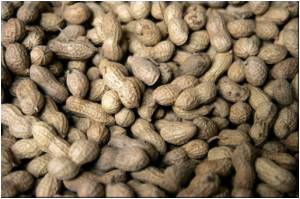- About Glutamate - (http://www.glutamate.org/basic/glutamate_and_the_human_body.htm)
- Monosodium Glutamate Dietary Consumption Decreases Pancreatic β-Cell Mass in Adult Wistar Rats - (http://www.ncbi.nlm.nih.gov/pubmed/26121281)
What is Monosodium Glutamate (MSG)?
Monosodium Glutamate, abbreviated as MSG, is a sodium salt derived from an amino acid, (glutamic acid). Glutamate is naturally found in protein rich foods like fish, meat and dairy products and is also produced by the human body.
MSG is used as a flavor enhancer and is a highly popular ingredient in Chinese cuisine. It is also found in processed food items such as canned meats, vegetables and soups. This food additive has a unique property of producing a fifth taste, called “umami”, which is best defined as savory, meaty or broth-like taste.
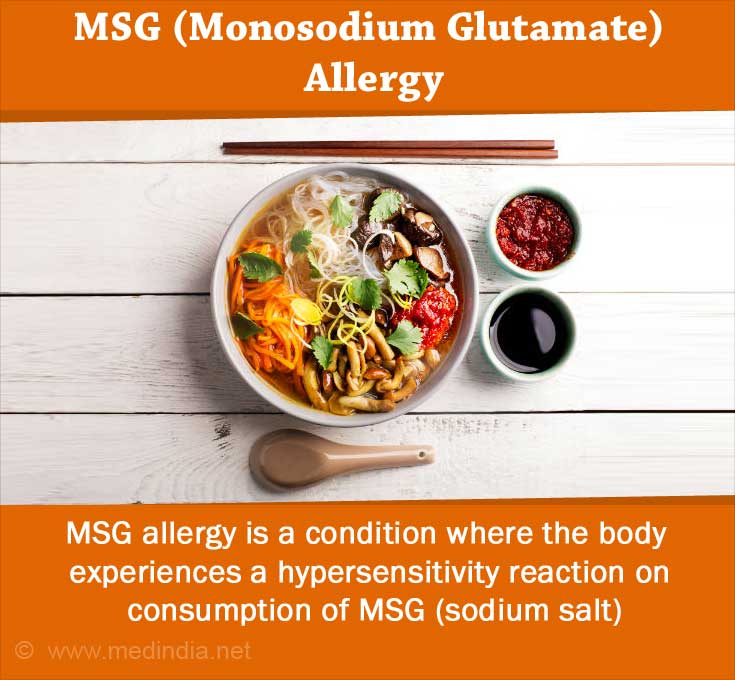
What is Monosodium Glutamate (MSG) Allergy?
MSG has been a cause of concern because it has been associated with certain unwanted reactions after consumption. MSG allergy can be described as a condition where the body experiences a hypersensitivity reaction on consumption of MSG. These could range from a headache to anaphylaxis.
MSG allergy is often confused with another phenomenon called MSG sensitivity. The former is caused due to a malfunction of the immune system while the latter is caused by the overstimulation of nerve cells. MSG normally stimulates the nerve endings to generate a craving for food. MSG-sensitive patients experience symptoms because of overstimulation of nerves or stimulation of incorrect nerves.
What Causes Monosodium Glutamate (MSG) Allergy?
There are no proven studies directly linking MSG with the cause of adverse reactions. Certain studies show that MSG coupled with other ingredients or under special circumstances produces an allergic response. For instance, sprinkling MSG on the food item results in consuming a more concentrated form of the substance than when it gets completely mixed in the dish. MSG allergy occurs when the body identifies MSG as a threat and responds by attacking with a hypersensitivity reaction. The symptoms experienced are caused by the antibodies that fight the additive. MSG intake was found to exert a negative effect on the pancreas. This condition is also called Chinese Restaurant Syndrome as MSG is mostly used as a flavor enhancer in Chinese dishes.
What are the Symptoms of Monosodium Glutamate (MSG) Allergy?
The prominent symptoms of MSG allergy include,
- Skin reactions such as dermatitis (skin inflammation), hives, rash and redness
- Flushing and sweating
- Swelling of face
- Heart palpitations
- Nausea and vomiting
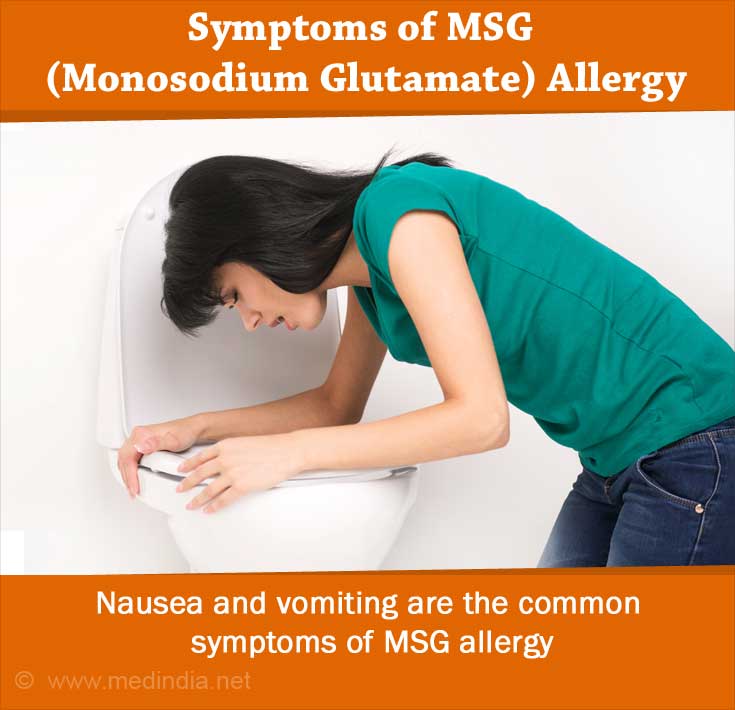
- Diarrhea
- Shortness of breath
- Anaphylaxis
How do you Diagnose Monosodium Glutamate (MSG) Allergy?
It is tough to diagnose MSG allergy using traditional allergy tests as it is a complicated condition. Therefore, the current method of diagnosis involves observation of the patient after feeding a small amount of MSG. If any reactions occur after observing for a 48-hour period, it confirms the presence of an MSG allergy or that the patient is an MSG intolerant.
How Do You Treat Monosodium Glutamate (MSG) Allergy?
The symptoms of MSG allergy usually disappear with time. But, in some severe cases like anaphylaxis, the patient may require immediate treatment. Anaphylaxis is a medical emergency requiring rapid interventions. The affected person may need support to assist breathing, to sustain blood pressure and other vitals. Adrenaline (epinephrine) is one of the life-saving drugs used in this situation. Classes of drugs called antihistamines and steroids are also used to treat anaphylaxis.
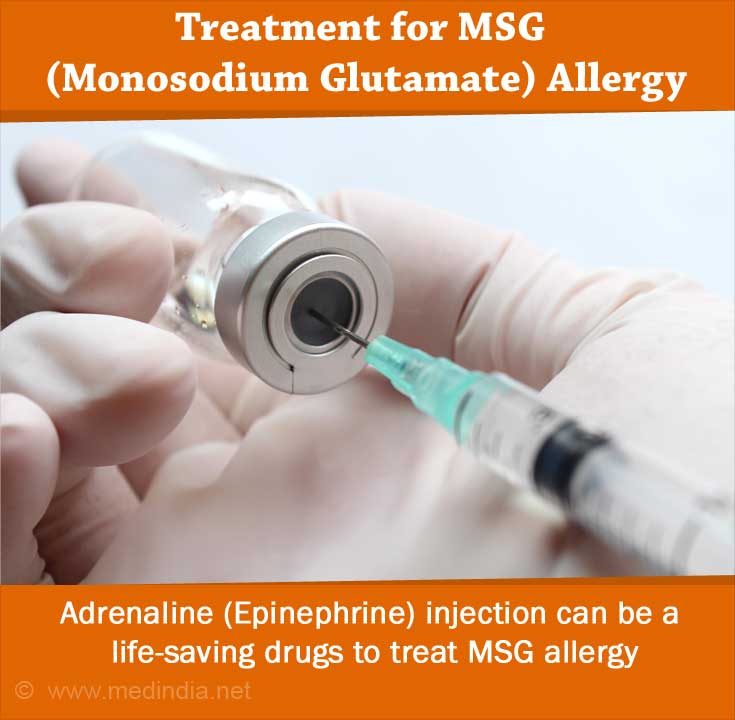
How Do You Prevent Monosodium Glutamate (MSG) Allergy?
The best way to avoid “Chinese Restaurant Syndrome” is by consciously avoiding MSG consumption. This can be an arduous task as MSG is found in most processed foods. Even when food labels claim that they are MSG free products, it may be present in some other form.
People suffering from a true allergy to MSG should completely eliminate packaged and processed foods from their diet.
Another alternative would be to opt for raw and fresh foods such as fruits, vegetables, and organic meats.
While cooking Chinese foods at home, avoid adding MSG and instead work out other flavor enhancers to make dishes with that zing.
Foods High in Monosodium Glutamate (MSG)
MSG is commonly found in high-protein foods such as meat, poultry, cheese and fish. Processed foods and meats contain high amount of MSG. Popular fast food joints also use MSG to enhance the flavor of their foods. Other items include soy sauce, parmesan cheese, fish sauce, yeast extract, mushrooms, walnuts, broccoli as well as in tomatoes.
All canned items also contain MSG. Explicit labeling of MSG is needed only if it is present as an ingredient, but there are several other ingredients that are made using small quantities of MSG.
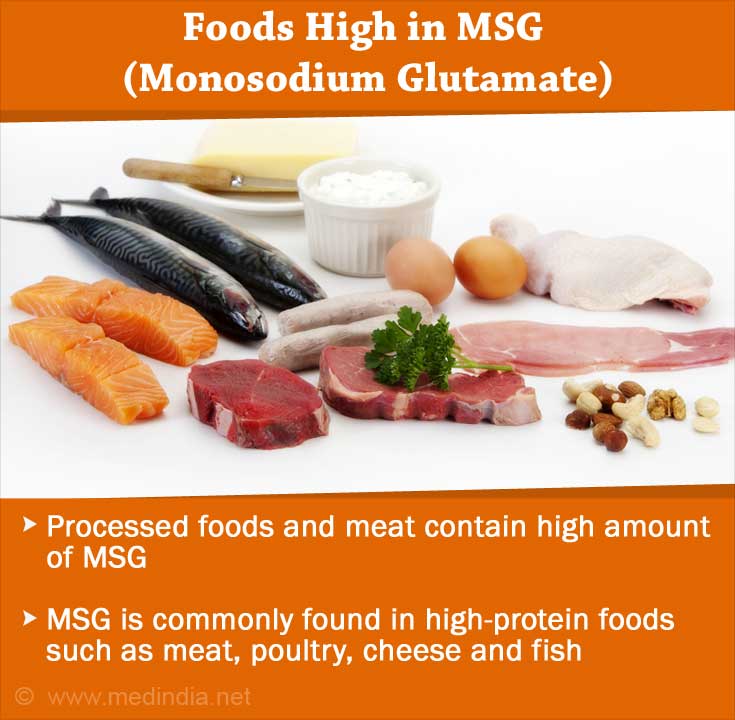
Foods to Avoid
Foods that should strictly be avoided by MSG intolerant patients include dried meats, meat extracts, poultry stocks, hydrolyzed protein, which may be used as binders, emulsifiers, or flavor enhancers. Even canned items and Chinese foods must be strictly avoided.
Health Tips
If you are aware that you are sensitive to MSG, then choose dishes without MSG. Avoiding MSG containing foods will leave you with a better and healthier lifestyle.


